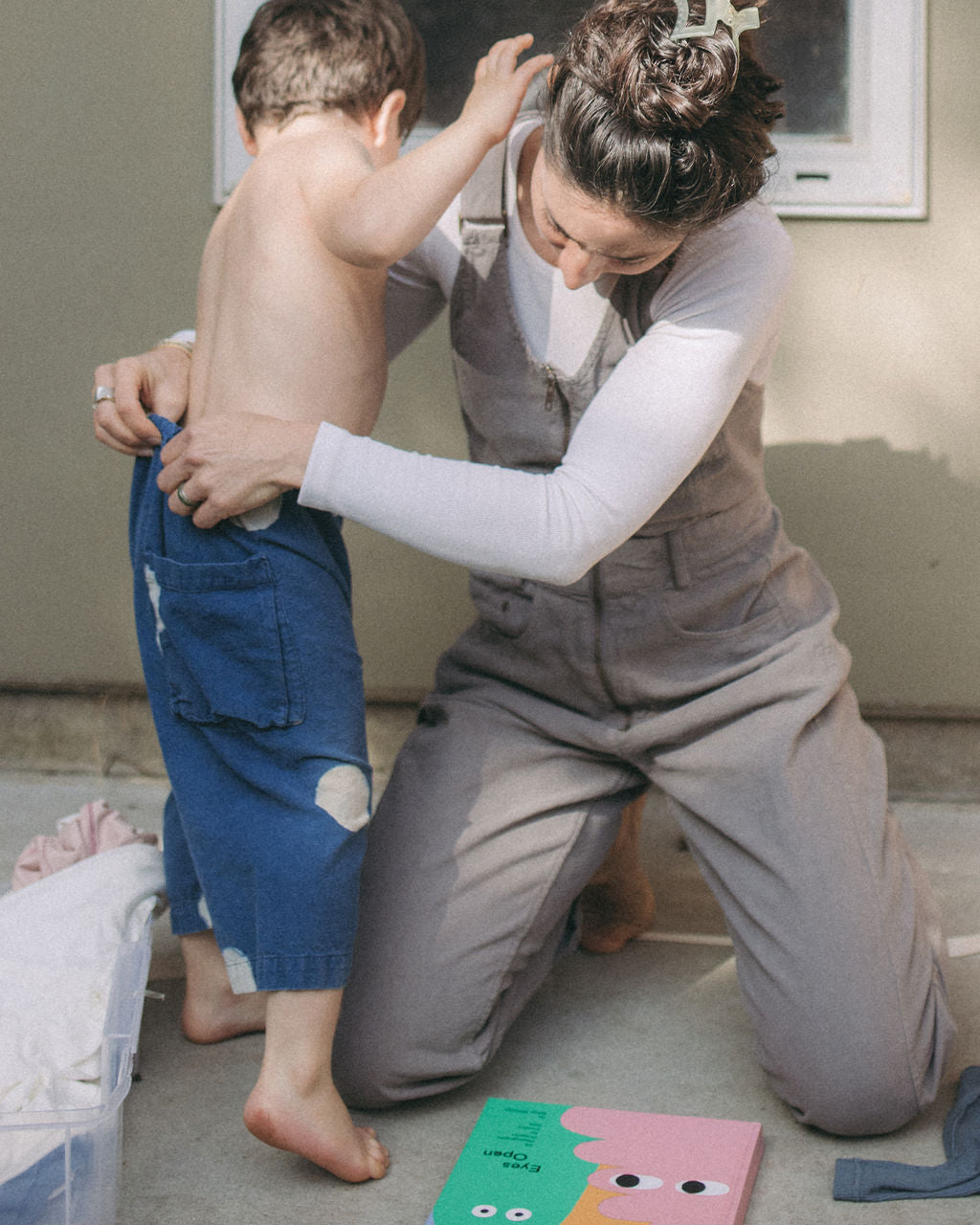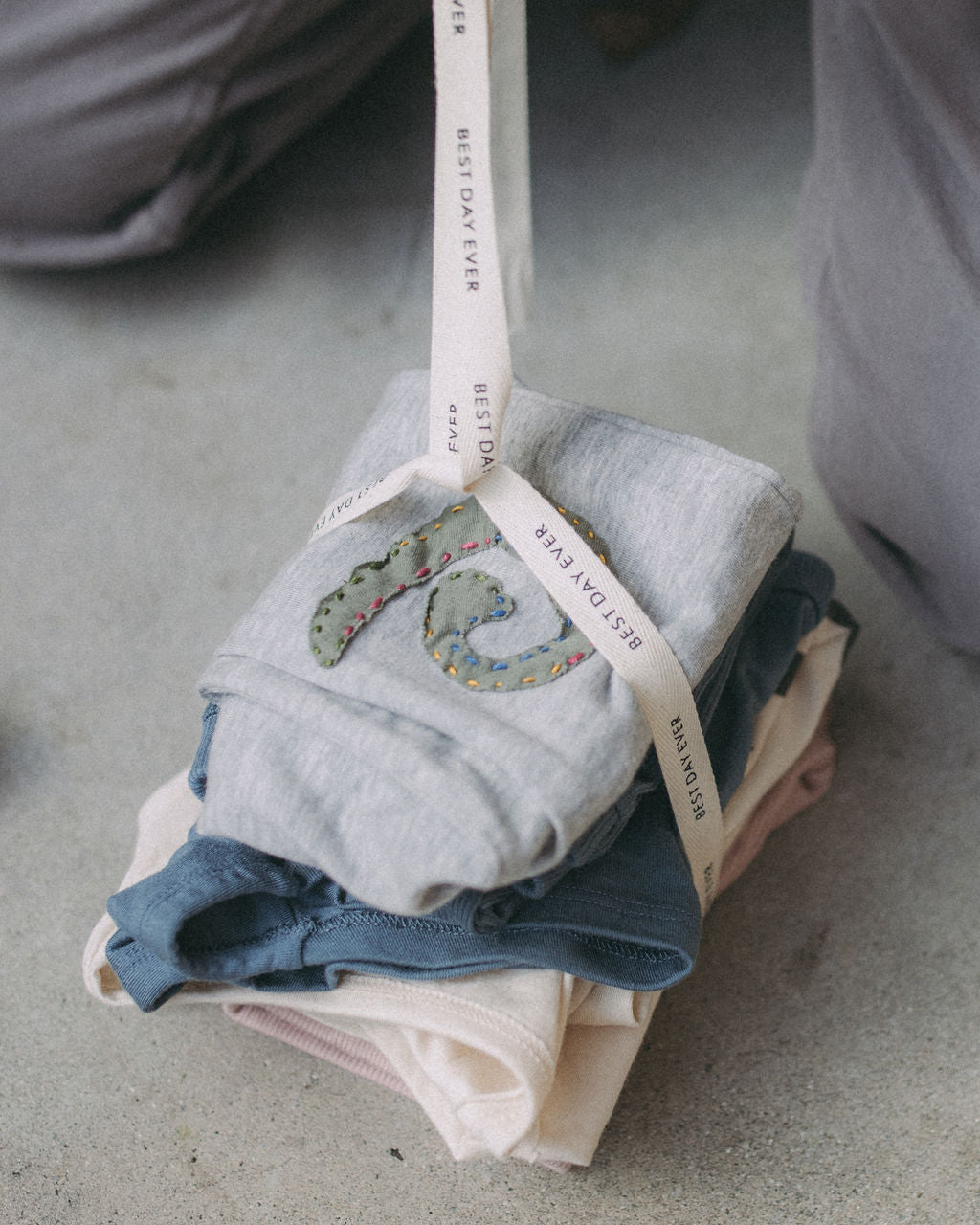Materials that Care for You
From the stitching to the waistband, to the way we ship our goods, every detail of our brand is thoughtfully chosen with your health and comfort as our top priority. Crafted from ultra-soft, cozy materials and entirely free from harsh chemicals, our pieces are designed to feel as good as they are safe. Good for you, and good for the planet!
Harvested in fjords using eco-friendly practices this innovative cellulose fiber is enriched with brown seaweed, which releases antioxidants and vitamins for a nourishing, revitalizing effect on the skin.
Seaweed provides moisture-wicking and breathable properties, absorbing moisture from the body and offering a soothing touch for sensitive skin. Rich in minerals such as magnesium, calcium, and potassium, it helps improve skin health, reduce inflammation, and alleviate irritation.
The production of our seaweed fiber follows a closed-loop system: water used in manufacturing is recycled, and waste is repurposed as natural fertilizer. The material is 100% biodegradable, making it a truly eco-friendly choice.
TENCEL™ lyocell fibers with REFIBRA™ technology represent Lenzing’s cutting-edge innovation in circular economy. REFIBRA™ technology upcycles cotton scraps from both pre- and post-consumer textile waste, converting them into recycled pulp. This pulp is then combined with wood pulp, resulting in new TENCEL™ lyocell fibers with 30% recycled content. The result is an incredibly soft and sustainable fabric.
A blend of Tencel™ lyocell, sourced from renewable wood in responsibly managed forests, and organic cotton delivers a silky-soft feel with a light, flowing drape. The organic cotton adds natural texture, making it super soft, comfortable, and cool against the skin.
While polyester thread is commonly used for sewing garments due to its affordability and strength, we choose GOTS-certified organic cotton thread made of extra long staple organic Pima cotton fiber grown without pesticides for our creations. Although significantly more expensive and less widely available, this premium thread aligns with our commitment to sustainability and quality.
We use bluesign® approved low-impact dyes, which are more eco-friendly compared to traditional dyes. Conventional methods often involve toxic chemicals, many of which are carcinogenic and hazardous to health, and require excessive water use. Bluesign® dyes focus on safety and sustainability, ensuring a cleaner process and a smaller environmental footprint.
Elastic waistbands made from synthetic materials involve harmful chemicals and dyes, which can pollute water sources and affect local communities. Additionally, these materials are not easily biodegradable, leading to increased waste in landfills.
In contrast, we use elastic made from natural tree rubber, knitted into organic cotton, TENCEL™ Lyocell, or used on its own. This eco-friendly alternative is OEKO-TEX® certified and biodegradable, offering a more sustainable and environmentally responsible choice compared to conventional synthetic waistbands. However, because natural rubber contains latex, some children may experience allergic reactions. For those with latex sensitivities, we recommend exercising caution and selecting products that prioritize their safety and comfort.
No itch here! We use sensory-friendly, tagless content labels with water-based dye to ensure comfort.
Our labels have been rigorously tested for lead in compliance with the Consumer Product Safety Commission (CPSC) standards. This ensures they meet the safety requirements outlined in the Consumer Product Safety Improvement Act (CPSIA), guaranteeing they are safe and non-toxic for children and families.
Our commitment to using recyclable paper packaging is driven by the principles of sustainability and circularity. Recycling offers a more circular and environmentally beneficial end-of-life solution compared to composting. Paper packaging, which is readily recyclable in curbside systems, retains much of its initial value when recycled, reducing the need for new raw materials and minimizing waste. To further our efforts, we’ve incorporated a release liner made from 100% recycled content that is also curbside recyclable, paired with a recycle-friendly, high-performance adhesive. This approach aligns with the hierarchy of waste reduction, where recycling is prioritized over composting because it preserves resources more effectively and supports a sustainable materials economy.
In contrast, most compostable packaging, particularly those made with bioplastics like PBAT and PLA, often degrades the quality of the compost produced. These materials, along with their additives, inks, and adhesives, do not contribute valuable nutrients to compost and can even introduce contaminants, making the output unsuitable for organic farming. Composters nationwide, including those in Colorado and Oregon, have faced significant challenges with compostable packaging, leading to bans on its acceptance. By choosing recyclable paper packaging, we aim to ensure that our packaging contributes positively to the environment, supporting a cleaner, more sustainable future.


